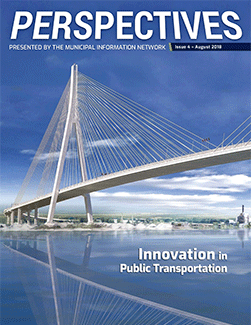This is not the "Civic Comment" that I had written originally for this edition of PERSPECTIVES.
However, the actions in Toronto on July 27 have such dramatic consequences for municipal governments in Ontario and potentially in other provinces that I tore up the original piece.
When new Premier Doug Ford announced on July 27 that the size of Toronto city council would be effectively halved (from 47 to 25), it was done on the final day of nominations for this fall's municipal elections. Election of the Regional Chair in four other municipalities was also cancelled, to be replaced by an appointment. The provincial actions came as a complete shock to Toronto and the rest of the municipal diaspora.
The election races had been in full swing for three months. Candidates had filed their nomination papers, lots of money had been spent on signs, brochures and web sites, doors were being pounded and voters were getting ready to make decisions about their ward councillor to say nothing of the administrative burdens that any City Clerk's department goes through to ensure a fair and efficient election process.
Then the thunderbolt from Queen's Park arrived.
Chaos. Hollering. Demonstrations. Anger. Acceptance. Ridicule. Charges of political retribution against his enemies by the one-term Toronto city councillor who is now Premier, perhaps tainted by his local government experiences because of his linked-at-the-hip time with his brother Rob, who for a while was the most notorious mayor in the world.
In a front page Opinion piece, the Toronto Star said, "It's a rash, autocratic gesture that shows contempt for local democracy, contempt for the local democratic process, contempt for us."
Opposition Leader Andrea Horwath called it "chilling".
Media threw around words like "revenge", "pettiness" and "vindictive". Toronto city council has asked its City Solicitor to consider a legal challenge. Mayor John Tory has proposed a referendum.
It is unlikely these challenges will succeed. Which brings us to the three really critical points:
- Provinces in Canada have virtually complete control over their municipalities. It says so in our 150+ year old constitution. The term used by many to describe a province's powers over its municipalities is "unfettered authority". That is accurate. This makes a mockery out of the oft-used phrase "our municipal partners" when uttered by provincial officials. It is not a partnership when one side has the ability to behead the other with impunity. This is why I have been arguing in my books and speeches for several years that we need to change the governance model in Canada.
- The timing and the process of this announcement are the key points of this Ford decision. The impact on the Toronto election is staggering. There was no prior announcement, no consultation, and no public process. When any order of government is about to change its election system, the public has certain fundamental rights. These were trampled by Premier Ford's hasty actions. Campaign plans are now out the window. People who were running may now not proceed. Candidates who might have even put careers on hold are now stuck. Large amounts of those precious campaign dollars have been completely wasted.
- There is a perfectly legitimate discussion that could, probably should, be held about the size of Toronto's city council. Some feel smaller may in fact be better, but that's a debate that should occur. The public has a right to a voice about its local government. To arbitrarily slash the council and disrupt an election in mid-stride appears to many to be petty and mean-spirited. That is unworthy of the democratic process.
The entire matter has to have scared the hell out of every other Ontario municipality and by extension, every one of the more than 4,000 municipalities across this nation. If Ontario can get away with it, what other provincial governments may be emboldened? (I deliberately use provincial'; territorial governments generally have a different and usually a more compatible relationship with their municipalities.)
This is exactly why I have been arguing that we need to change the governance and taxation model in Canada. It is unequal, unfair and unproductive. The rise of cities in the past decades has shifted the economic and social power to local governments, but provincial governments continue to cling grimly to their absolute power over towns and cities.
In Ontario, I am sceptical that any court challenge will succeed. I am also dubious that any Ontario municipality will trust the new provincial government about anything during its four-year reign.
It is a hurtful and harmful way to run a province and to develop any kind of effective working relationship with your partners' in government. But perhaps Queen's Park doesn't care.








